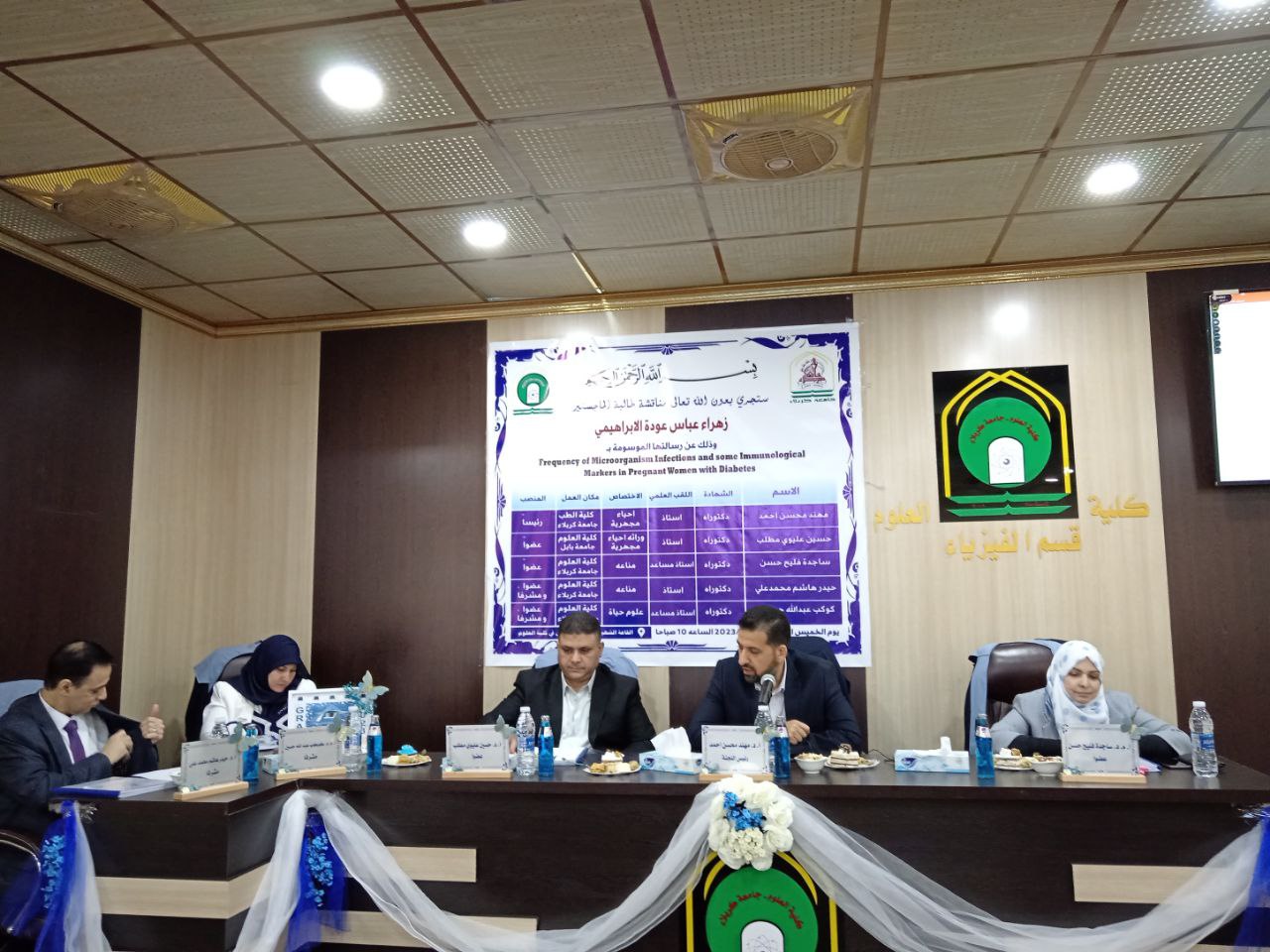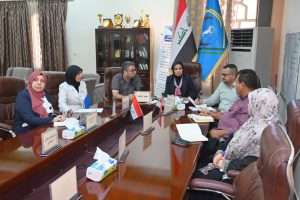Faculty of Science / University of Kerbala has discussed the M.A thesis which is entitled “frequency of microorganisms infection with and some immunological markers in pregnant women with diabetes”.
The study, presented by Zahraa Abbas Odeh, aims at determining frequency of microorganisms infections in urinary tract and their relationship to some immunological indicators in pregnant women with type 1 and type 2 diabetes, as well as studying the effect of presence of CsgA in bacteria isolated from urine of pregnant women with diabetes, its effect on recurrence of urinary tract infections.
The study sample consists of 90 secretions collected by the researcher from 58 samples from pregnant women suffering from diabetes with or without urinary tract infections, in addition to 32 healthy women (17 pregnant and 15 unmarried). The study examines the extent of the effect of immune markers (CD4, CD19, CD28). , CD86, TLR-4) on recurrence of urinary tract infections in pregnant women with diabetes.
The thesis concludes that bacterial infections (UTI) in pregnant women with diabetes have an impact on levels of CD4+ T cells and CD19+ B cells, and CsgA gene found in Gram-negative bacteria plays a role in bacterial virulence, in addition to presence of statistically significant differences in levels of CD4 cells. +T cells, CD19+B cells, CD86, CD28, and TLR-4 cells as a result of the effect of bacterial infection, presence of autoimmune diseases T1DM and T2DM, and absence of significant differences for both red blood cells and platelets in pregnant women with type 1 or type 2 diabetes.
The thesis recommends measuring the level of immunological markers themselves using flow cytometry or PCR techniques, as well as measuring level of csgA and SAng protein in patients’ serum using ELISA technology.
































































